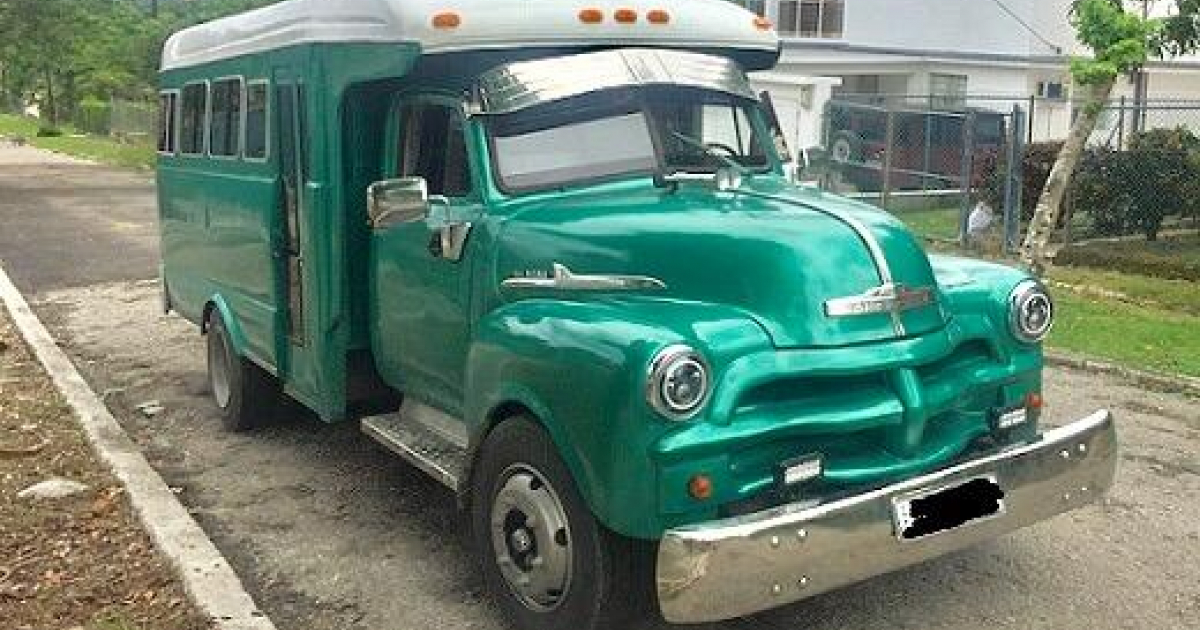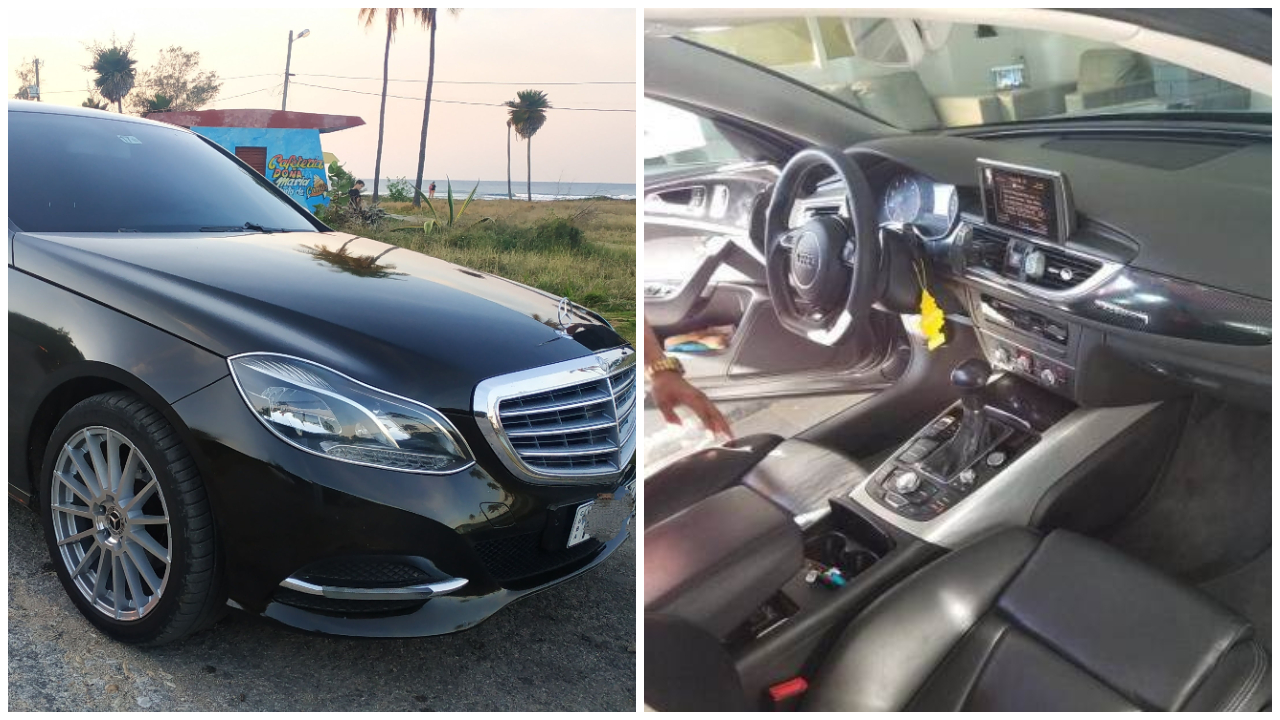Buying cars in Cuba today has become an increasingly popular topic for both locals and international visitors. The Cuban automotive market has undergone significant changes in recent years, making it more accessible than ever before. Whether you're a resident or planning to visit, understanding the intricacies of the car market in Cuba is essential for making informed decisions.
The Cuban automotive industry has evolved from being a niche market dominated by vintage cars to a more modern and dynamic ecosystem. This transformation is driven by government policies, technological advancements, and increased demand from consumers. In this article, we will explore the current state of car sales in Cuba, including legal requirements, available options, and tips for buyers.
As you navigate through the Cuban car market, it's important to consider factors such as budget, vehicle condition, and legal documentation. By the end of this article, you will have a clear understanding of how to buy a car in Cuba today and make the most of your investment.
Read also:Michael Rainey Jr Wife A Comprehensive Look Into His Personal Life And Journey
Table of Contents
- Overview of the Cuban Car Market
- Legal Requirements for Buying Cars in Cuba
- Types of Cars Available in Cuba
- Pricing and Budget Considerations
- The Car Purchase Process in Cuba
- Tips for Buying Cars in Cuba
- Buying Used Cars in Cuba
- Buying New Cars in Cuba
- Financing Options for Car Purchases
- Future Trends in the Cuban Car Market
Overview of the Cuban Car Market
The Cuban car market has experienced substantial growth over the past decade. Historically, the country was known for its iconic vintage cars, but today, modern vehicles are becoming more common. The government's decision to liberalize car imports and sales has contributed significantly to this trend.
In recent years, Cuba has opened its doors to international car manufacturers, leading to a wider variety of options for consumers. However, the market still faces challenges such as limited availability, high prices, and bureaucratic processes. Understanding these dynamics is crucial for anyone interested in buying cars in Cuba today.
Additionally, the rise of private dealerships and online platforms has made it easier for buyers to find and purchase vehicles. This shift reflects broader economic reforms taking place in the country, aimed at modernizing various sectors, including transportation.
Key Statistics About the Cuban Car Market
- As of 2023, the number of registered vehicles in Cuba exceeds 600,000.
- Approximately 70% of cars on Cuban roads are pre-1960 models, but this percentage is gradually decreasing.
- Imported cars account for around 30% of total sales, with China and Europe being the primary sources.
Legal Requirements for Buying Cars in Cuba
Before purchasing a car in Cuba, it's essential to familiarize yourself with the legal requirements. The Cuban government has established specific regulations to ensure transparency and protect buyers and sellers alike. Here's what you need to know:
To buy a car in Cuba, you must provide proof of residency or a valid visa. Non-residents can also purchase vehicles, but they may face additional restrictions depending on their citizenship and purpose of purchase. Legal documentation, including the vehicle title and registration papers, must be complete and accurate to avoid complications.
In addition, all cars sold in Cuba must meet certain safety and environmental standards. This includes passing inspections and obtaining the necessary permits from local authorities. Failure to comply with these requirements can result in fines or confiscation of the vehicle.
Read also:Exploring Calum Hood Relationships A Comprehensive Guide
Steps to Verify Legal Documentation
- Check the vehicle's certificate of ownership for authenticity.
- Ensure the car has passed the latest inspection and is compliant with Cuban regulations.
- Consult with a licensed attorney or legal expert if you're unsure about any aspect of the process.
Types of Cars Available in Cuba
The Cuban car market offers a diverse range of options to suit different budgets and preferences. From classic American cars to modern European sedans, there's something for everyone. Below, we explore the main categories of cars available in Cuba today:
Classic Cars
Classic cars remain a staple of the Cuban automotive landscape. These vehicles, often dating back to the 1950s, are beloved for their unique charm and historical significance. While they may require more maintenance, owning a classic car in Cuba is a rewarding experience for enthusiasts.
New Cars
New cars are increasingly available in Cuba, thanks to partnerships with international manufacturers. Popular brands such as Toyota, Hyundai, and Volkswagen have established a presence in the market, offering a variety of models to choose from. New cars typically come with warranties and are subject to stricter quality controls.
Used Cars
Used cars represent a significant portion of the Cuban market, providing affordable options for buyers on a budget. These vehicles may have varying levels of wear and tear, so thorough inspections are recommended before making a purchase. Private sellers and dealerships are common sources for used cars in Cuba.
Pricing and Budget Considerations
Prices for cars in Cuba can vary widely depending on factors such as make, model, condition, and age. On average, new cars range from $20,000 to $50,000, while used cars can be found for as little as $5,000. However, prices may fluctuate based on supply and demand dynamics.
When budgeting for a car purchase in Cuba, consider additional costs such as taxes, insurance, and maintenance fees. These expenses can add up quickly, so it's important to plan accordingly. Consulting with local experts or researching online can help you get a better understanding of current market prices.
Tips for Negotiating Prices
- Research the average price range for the specific model you're interested in.
- Be prepared to walk away if the seller is unwilling to meet your price.
- Consider purchasing during off-peak seasons, as sellers may be more willing to negotiate.
The Car Purchase Process in Cuba
The process of buying a car in Cuba involves several steps, from initial research to finalizing the transaction. Here's a breakdown of what to expect:
First, identify your needs and preferences by considering factors such as budget, intended use, and desired features. Next, explore available options through dealerships, private sellers, or online platforms. Once you've found a suitable vehicle, conduct a thorough inspection to ensure its condition meets your expectations.
After agreeing on a price, complete the necessary paperwork and pay the agreed-upon amount. Finally, register the vehicle with local authorities to obtain the required permits and licenses. This process can take several weeks, so patience is key.
Common Challenges During the Purchase Process
- Language barriers when communicating with sellers or officials.
- Bureaucratic delays in obtaining documentation.
- Difficulty finding spare parts for certain models.
Tips for Buying Cars in Cuba
Buying a car in Cuba can be a rewarding experience if approached with the right mindset and preparation. Here are some tips to help you navigate the process:
- Research extensively before making any commitments.
- Inspect the vehicle thoroughly, paying attention to mechanical components and overall condition.
- Verify the seller's credentials and ensure all documentation is in order.
- Consider working with a local guide or translator if you're unfamiliar with Cuban customs.
Buying Used Cars in Cuba
Used cars are a popular choice for buyers in Cuba due to their affordability and availability. However, purchasing a used car requires extra caution to avoid potential pitfalls. Start by identifying reputable sellers and reading reviews or testimonials from previous customers.
When inspecting a used car, pay close attention to its mechanical components, body condition, and mileage. Request a detailed maintenance history if possible, as this can provide valuable insights into the vehicle's past. Additionally, consider having a mechanic perform an independent evaluation before finalizing the purchase.
Advantages of Buying Used Cars
- Lower upfront cost compared to new cars.
- Potential for finding rare or unique models.
- Established reliability and performance history.
Buying New Cars in Cuba
For those seeking the latest technology and features, buying a new car in Cuba is an attractive option. New cars come with warranties, ensuring peace of mind for buyers. However, they tend to be more expensive and may require longer waiting times due to import restrictions.
To purchase a new car, visit authorized dealerships and explore available models. Be prepared to provide all necessary documentation and make a deposit if required. Once the vehicle arrives, complete the registration process and enjoy your new ride.
Benefits of Buying New Cars
- Access to advanced safety and entertainment features.
- Lower maintenance costs in the short term.
- Enhanced resale value compared to used cars.
Financing Options for Car Purchases
Financing a car purchase in Cuba can be challenging, especially for non-residents. However, some banks and financial institutions offer loans to qualified buyers. These loans typically come with interest rates and repayment terms that vary depending on the lender.
Alternatively, you can explore private financing options or pay in full if your budget allows. Regardless of the method you choose, ensure that all agreements are documented and legally binding to protect your interests.
Things to Consider When Financing a Car
- Interest rates and associated fees.
- Repayment terms and conditions.
- Collateral requirements, if applicable.
Future Trends in the Cuban Car Market
The Cuban car market is poised for continued growth and innovation in the coming years. As the country continues to modernize its infrastructure and economy, we can expect to see more advancements in automotive technology and accessibility. Electric and hybrid vehicles are likely to gain popularity, driven by environmental concerns and government incentives.
Furthermore, the expansion of digital platforms and online marketplaces will make it easier for buyers and sellers to connect, streamlining the purchasing process. These developments highlight the exciting possibilities ahead for the Cuban automotive industry.
Predictions for the Next Decade
- Increased adoption of electric and hybrid vehicles.
- Improved access to financing options for car buyers.
- Enhanced digital tools for researching and purchasing cars.
Conclusion
Buying cars in Cuba today is a dynamic and evolving process that requires careful consideration and planning. From understanding the legal requirements to exploring available options and financing methods, this article has provided a comprehensive guide to help you make informed decisions. Whether you're interested in classic cars or modern vehicles, the Cuban market offers something for everyone.
We encourage you to share your thoughts and experiences in the comments section below. Your feedback is invaluable in helping us improve our content and provide better resources for our readers. Don't forget to explore other articles on our website for more insights into Cuban culture, economy, and lifestyle.


